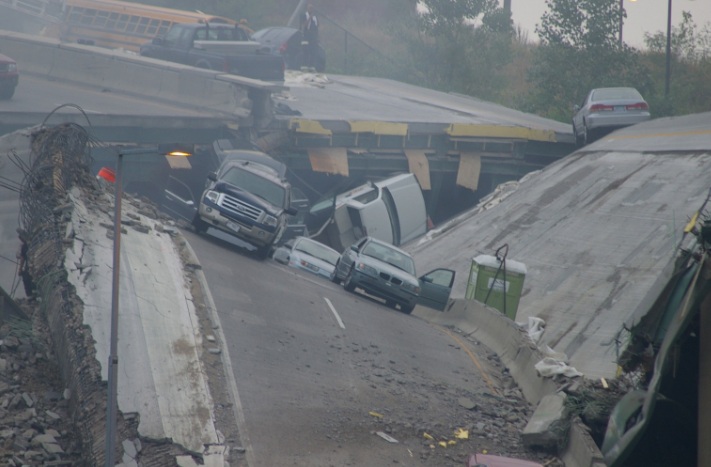Buhari and rainy day savings

Keen observers of President Buhari’s speeches would have been taken aback by his constant recourse to apportioning blames for the current economic straits into which the nation is seemingly irretrievably entangled.
At some point, it was convenient to blame the immediate past regime of Jonathan for squandering the nation’s resources due to its inability to save for the proverbial rainy day. At another, he collectively held accountable the PDP governments spanning through the regimes of Obasanjo, Yar’Adua and Jonathan for this pass.
The President’s mood was succinctly captured in one of his speeches thus “when we came in by some unfortunate coincidence, I screamed to high heavens because I had promised a lot while seeking votes. I asked where are the savings. There were no savings. There was no infrastructure, power, rails, roads, there was none. I then asked, what did we spend our money on? I was told they spent it in buying food and petrol”. So, the blame game goes.
Apparently fighting back criticisms on his constant resource to buck-passing to exculpate his regime from the chain of events that presaged the current economic recession, he very recently said he will not stop blaming his predecessors for the economic woes. For him, buck-passing is sometimes absolutely necessary to remind people who take things for granted.
The above thinking gained marginal support from Obasanjo when he accused former governors during his regime of frustrating his efforts to save for the rainy day when the price of oil was higher. “I remember when I was in government and I told particularly, the governors please let us save for the rainy days: they said no!”
Before now, former minister of finance, Ngozi Okonjo-Iweala had maintained that the inability of the Jonathan administration to save was as a result of the insistence by the governors that proceeds from the Excess Crude Account be shared outright.
If we pair the above positions, we are likely to fall into the temptation of concluding that the 16 years of PDP rule or mismanagement was largely responsible for the current recession due largely, to the inability of that government to save.
But the issue is not as simplistic as it has been presented. Bolaji Akinyemi, former Minister of External Affairs has a more explanatory perspective on why it is not possible to make the type of savings envisaged by Buhari. Incidentally, Obasanjo and Okonjo-Iweala scratched the surface of the matter when they accused governors of frustrating efforts to save. And one would ask how and why?
Akinyemi seems to have much of the answer. He said the failure of the country to save is rooted in Section 162 of the 1999 constitution which made it mandatory for the largest chunk of the revenue generated by the country to be deposited into a central account to be distributed between the federal, state and local governments.
He said, serious efforts were made by both the Obasanjo and Jonathan regimes to put in place savings through the backdoor in the form of Excess Crude Account and Commonwealth Savings Funds but they were frustrated by the governors. The irony of it all is that some of the governors very prominent in frustrating that attempt are now calling the shots in Buhari’s cabinet and at the senate.
A number of issues have been thrown up by Akinyemi’s intervention. The first is that it is a constitutional requirement that such monies be shared among the three tiers of the governments’ of the federation. Thus, any attempt by any regime including the present one to tamper with that revenue sharing order in the name of saving for the rainy day, would amount to a breach of the constitution.
Secondly, there was strident opposition from the governors against such savings. Even if past leaders were favorably disposed to such savings, the resistance of the governors greatly diminished such prospects. These were the two salient points made by Akinyemi.
Even now, Buhari is unlikely to accumulate the type of savings he envisages, if he intends to generate same from the federal share of the Federation Account. The way things stand; he is more likely to face stiffer opposition should he attempt to save through the backdoor as was the case during previous regimes. So also any attempt to alter the constitution to give more financial powers to the centre.
If the sole aim is to conserve monies entering into the Federation Account, then we have got it all wrong because it runs contrary to extant regulations on revenue sharing.
But the issue to consider is why state governors oppose such savings. Its answer is rooted in the revenue sharing formula and the different responsibilities which the constitution assigns different tiers of government. States need money to take care of their constituents. Some of them get higher accruals on account of the sharing formula. There is also distrust and suspicion regarding the capacity of the central authority to deploy such resources to ends that will serve the overall interests of the constituents.
Allowing the federal government the custody of such monies would, apart from denying the states the necessary funds to develop their areas, further accord disproportionate financial advantage to the centre. Before now, the enormous financial muscle and powers at the disposal of the central authority has been an issue. Resurging agitations for fiscal federalism and restructuring are inexorably linked to this.
There is also the suspicion that goes with the type of dangerous politics we play in this country- the type Buhari made reference to when he asserted that he should not be expected to treat on equal terms, sections that massively voted him and areas that did not. In such a circumstance, it is left to be seen how states that did not vote massively for him, would allow such a leader appropriate funds meant for them only to deploy same against their interests. That is part of the issue.
In essence therefore, the point is missed when we talk of savings as if it is an end unto itself rather than a means to an end. A more meaningful approach would have been to look at the indices of development during those regimes but definitely not in the very dismissive sense of no infrastructure, no power, roads, rails etc as Buhari would make us believe.
Such blanket dismissal of efforts of past regimes bears the imprimatur of all we were treated to during the cycle of military coups and counter coups that heralded the years of the locust. Ironically, Buhari had an outing during that period and like his colleagues, shares culpability for whatever that has befallen this country. After all, the oil boom predated the present democratic order.
It could also be asked how much of the accruals from oil boom was saved by military interlopers? Claims make more sense when backed by verifiable evidence rather than the sweeping and non factual averments we were sadly treated to in the president’s independence speech: “investors from all over the world are falling over themselves to come and do business in Nigeria”
Definitely, investors’ confidence is the least to expect in a country deep into recession. Not with the relocation of foreign airlines to other African countries and drop in foreign investment portfolio. So, one is surprised that such claims were bandied and the president accepted them hook, line and sinker. Something must be wrong with the way the president’s speeches are processed and approved especially against the background of the plagiarism contained in his address during the launch of the Change Begins with me campaign.








